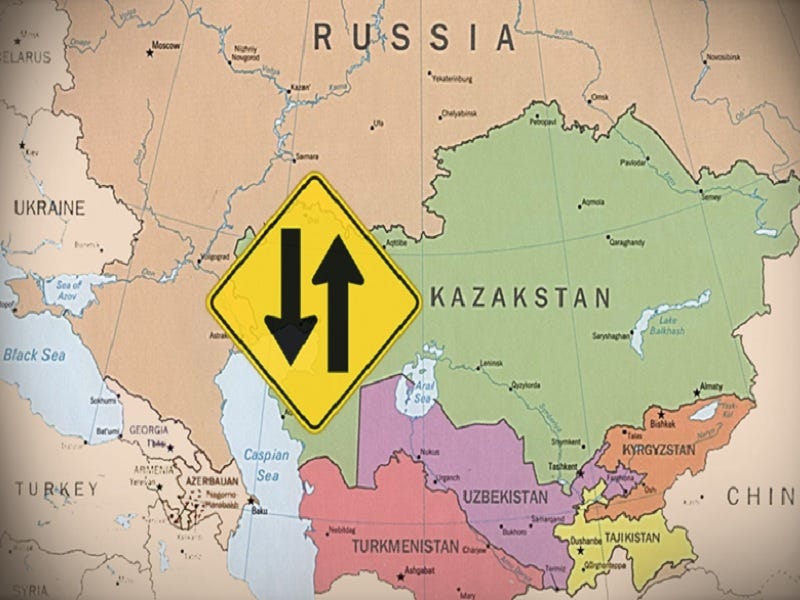Afghan-Emanating Terrorist Threats Catalyze Closer Russian-Central Asian Military Integration
While the Central Asian front of the New Cold War isn’t as dynamic as the Eastern European one, that doesn’t mean that it’s any less dangerous. To the contrary, Afghan-emanating terrorists will almost certainly attempt to infiltrate Russia as part of the US’ new plot to “Balkanize” it on a faux “decolonization” basis.
The first-ever meeting of the Russian, Kazakh, Kyrgyz, Tajik, and Uzbek Defense Ministers was just held on Friday, during which time Moscow’s military chief warned everyone about the heightened risk of Afghan-emanating terrorist threats. According to Shoigu, “The leaders of international terrorists consider Afghan territory as a base for infiltrating neighboring countries and creating an extensive jihadist underground network, manned by militants from trouble spots.” This is especially relevant in light of January’s unexpected Hybrid War of Terror on Kazakhstan that required a prompt Russian-led CSTO intervention to resolve before it spiraled out of control in the region’s largest country.
“Everything’s Getting Messy Again In Afghanistan”, which even Russia’s Special Presidential Envoy to that country warned about earlier this month, which means that this war-torn country will continue functioning as the core of regional destabilization processes. The silver lining, however, is that this is catalyzing closer Russian-Central Asian military integration in response that will in turn help more confidently secure this part of the supercontinent from such threats. Nevertheless, it would of course be better if no such terrorist threats were emanating from Afghanistan, but since they are, Russia’s taking the lead in ensuring that they don’t cause chaos in Central Asia.
What’s most remarkable about Friday’s meeting was Uzbekistan’s participation since it’s the only one of those five countries that isn’t party to the Russian-led CSTO mutual defense pact after having previously withdrawn from it. This speaks to that country’s pragmatism in moving closer to that bloc in response to recent events in the region, particularly Afghanistan, as it understands that this the most effective way to ensure its interests in the new security environment. For all intents and purposes, it can be said that Uzbekistan is now an unofficial Russian military ally, which is a trend that began emerging ever since its incumbent leader came to power a few years back but is finally maturing in a tangible sense.
In terms of the bigger picture, there are two primary epicenters of Eurasian destabilization nowadays: Afghanistan and Ukraine. Each of them is rocking the supercontinent in their own way, the first-mentioned through unconventional threats and the second through conventional ones. Both conflicts are the direct result of America’s grand strategy to weaponize chaos against its geopolitical competitors, especially Russia. Be that as it is, they’ve thus far had the opposite effect as intended since that Eurasian Great Power’s security has only strengthened in response to these newfound threats to its security and sovereignty.
While the Central Asian front of the New Cold War isn’t as dynamic as the Eastern European one, that doesn’t mean that it’s any less dangerous. To the contrary, Afghan-emanating terrorists will almost certainly attempt to infiltrate Russia as part of the US’ new plot to “Balkanize” it on a faux “decolonization” basis. While this plot is doomed to fail, it might still inflict some damage before that incipient campaign is completely quashed. Nonetheless, Russia’s Central Asian “shield” will likely protect it from the majority of such attempted terrorist infiltrations, ergo why Moscow sought to strengthen its anti-terrorist defenses in the region even further by hosting Friday’s unprecedented security meeting.




